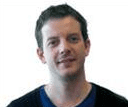If you look closely you can see it, passed out in the corner in a puddle of vomit — Canada’s reputation. It was the year of the drunken stupor. A year during which we watched so many of our elected leaders stumble from boondoggle to gaffe to cover-up. To many it seems that our reserved and quiet country will never be the same. It feels like a loss of innocence — but also a loss of our senses.
But 2013 was also the year of the little guy (and girl) standing up to, and fighting, increasingly inept leadership. While so many corrupt, scandal-plagued, homophobic, sclerotic leaders brought shame, we could look to brave individuals around the world for examples of courage that resulted in historic change.
Edie Windsor took on the United States government and won. The US Supreme Court struck down the Defense of Marriage Act and pushed open the doors to gay marriage. NBA player Jason Collins came out — hopefully the first of many professional athletes to do so. Individual journalists worked assiduously to further expose the iniquity of Toronto’s mayor — as well as the rot in our federal government and Senate, a scandal that will likely, finally, rid us of Stephen Harper. And individual activists came together behind the scenes to help secure the release of two Canadians imprisoned in Egypt.
Meanwhile, individual athletes, gay and straight, fought back against the homophobic International Olympic Committee and Russia, which will host the Winter Games in the new year. The IOC has a record of homophobia going back to 1982, when it sued the organizers of the Gay Olympics — later the Gay Games — for taking the name “Olympic” while not bringing legal action against other competitions, such as the Police Olympics and the Nebraska Rat Olympics.
But it was Russia’s energetic homo-phobia that seemed wholly new and, to many casual observers, unexpected. Vladimir Putin’s anti-gay propaganda laws and violence against gay people in Russia made headlines around the world. The activism that followed, from vodka dumping to widespread petition “clicktivism,” took on a life of its own and provided a powerful platform for international solidarity in the fight against homophobia. Perhaps the most poignant representation of this came from Uganda, where brave gays and lesbians marching in their second Pride parade held up placards that stated “Pride Uganda supports LGBT Russia.”
As the year comes to a close, it’s hard not to feel despair about the state of leadership in Canada and the wider world. But it’s moments like that Pride march in Kampala that put these feelings in perspective. It’s also worth remembering the story of a leader like Nelson Mandela, who maintained such perspective even after 27 years behind bars. Mandela’s death provides an opportunity to celebrate his remarkable and progressive activism. It also serves as a reminder of what’s possible, of what just one determined individual can accomplish.
Closer to home, Calgary Mayor Naheed Nenshi exemplifies a similar style of leadership. A couple years ago, Nenshi launched the “3 Things for Calgary” challenge, calling on all the citizens of his city to take action in each community to make Calgary a better place to live. Nenshi asked all Calgarians to think about their community and those issues that are important to them. Next, they had to decide on three actions they could take to make their street, neighbourhood or city better. Finally, Nenshi asked Calgarians to do those things and tell others about it. The initiative has a website and a Facebook page where people can leave their individual stories of change.
It’s not a bad challenge for our other political leaders. For that matter, what three things will you do for your community this coming year?
Danny Glenwright is Xtra’s managing editor.


 Why you can trust Xtra
Why you can trust Xtra


